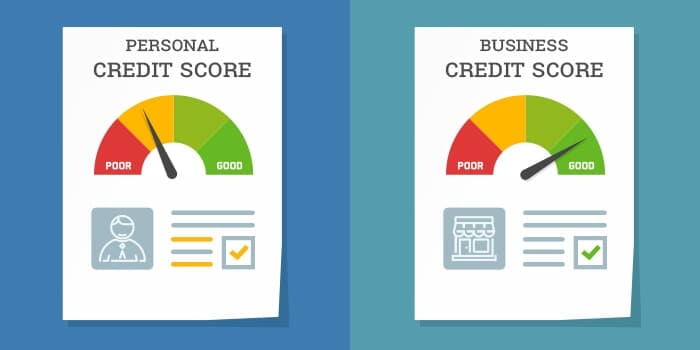
Leveraging Personal and Business Credit to Maximize Real Estate Investment Opportunities
Leveraging Personal and Business Credit to Maximize Real Estate Investment Opportunities
When it comes to real estate investing, the importance of credit cannot be overstated. Both personal and business credit play critical roles in securing funding, accessing favorable loan terms, and ultimately driving the success of your investment portfolio. In this guide, we’ll break down how lenders view credit, tips for building both personal and business credit, and when each type matters most in real estate investing.
Understanding Lender Perspectives: Personal vs. Business Credit
Lenders assess credit differently depending on whether they're evaluating personal or business credit. Here’s a breakdown of what they look for:
Personal Credit: Even for business investments, lenders often assess your personal credit, especially if your business is new or lacks an extensive credit history. A strong personal credit score suggests that you manage your finances responsibly, which gives lenders confidence that you’ll also handle loan repayments for your real estate investments.
Business Credit: As your business grows, your business credit score becomes increasingly important. Lenders look at your business’s creditworthiness to determine how well it handles its financial obligations. A strong business credit profile can help you qualify for larger loans, better terms, and even specific loan products like commercial loans and lines of credit tailored to business entities
Building Personal Credit: Tips for Real Estate Investors
Since lenders often consider personal credit in investment scenarios, keeping a strong score is crucial. Here are steps to maintain and build personal credit:
Pay on Time, Every Time: Payment history is the largest factor affecting your credit score, so making on-time payments is essential.
Manage Credit Utilization: Aim to keep your credit card balances below 30% of your available credit. High credit utilization can lower your score and signal financial strain to lenders.
Minimize Hard Inquiries: Each hard credit inquiry can slightly impact your score. Be strategic about applications and avoid applying for too much credit in a short period.
Diversify Credit Types: A mix of credit accounts—such as credit cards, auto loans, and mortgages—can positively impact your score.
Establishing and Strengthening Business Credit
Building business credit can be a powerful asset for securing real estate funding. Here’s how to get started:
Incorporate Your Business: Structure your business as a corporation or LLC, which separates personal finances from business finances. This allows you to establish a unique credit profile for your business.
Apply for an Employer Identification Number (EIN): Similar to a social security number, an EIN is necessary for business credit applications and helps distinguish your business as a separate entity.
Open a Business Bank Account: This not only helps with bookkeeping but also demonstrates financial stability. Lenders view a dedicated business account as a positive sign of organization and planning.
Use Business Credit Accounts: Open and consistently use business credit cards or small vendor accounts that report to business credit bureaus. Making timely payments will help build your business credit profile.
Work with Reporting Vendors: Partner with vendors and suppliers that report payments to business credit bureaus. Over time, consistent, timely payments will boost your business credit score.
When Each Type of Credit Matters Most in Real Estate Investing
Personal and business credit play different roles, depending on your investment strategy and business maturity.
Starting Out: In the early stages of your investing career, lenders will rely heavily on your personal credit to determine your loan eligibility and terms. At this stage, maintaining strong personal credit is crucial.
Growing Your Portfolio: As you acquire more properties and establish a track record, business credit can offer more flexible financing options. You may qualify for larger loans, better interest rates, and specific real estate financing products like commercial loans or lines of credit based on your business credit profile.
Scaling with Commercial Properties: When expanding into commercial properties or multifamily units, business credit becomes even more essential. Lenders will evaluate your business’s creditworthiness to determine if your entity can handle the financial responsibility of a larger loan.
Leveraging Lines of Credit for Flexibility: For real estate investors, having a line of credit can be a game-changer, allowing you to act quickly on opportunities. Both personal and business credit can come into play here, but a strong business credit profile might allow you to secure a higher line with better terms, which can be especially useful in competitive markets.
Final Thoughts: The Strategic Role of Credit in Real Estate Investing
Credit is more than just a number; it’s a key that can open doors to a variety of investment opportunities. By strategically building and leveraging both personal and business credit, investors position themselves to take advantage of diverse financing options, better terms, and ultimately achieve more sustainable growth in their portfolios.
Investing in real estate requires significant financial planning and discipline. Strong credit profiles—both personal and business—serve as valuable tools in an investor's financial toolbox. With intentional steps toward strengthening credit, investors can unlock new opportunities, reduce costs, and navigate the real estate landscape with greater confidence.
For more information on financing options tailored to real estate investors, explore our Loan Products and learn how MK Capital Funding can support your investment journey.
For more information on financing options tailored to real estate investors, explore our Loan Products and learn how MK Capital Funding can support your investment journey.
